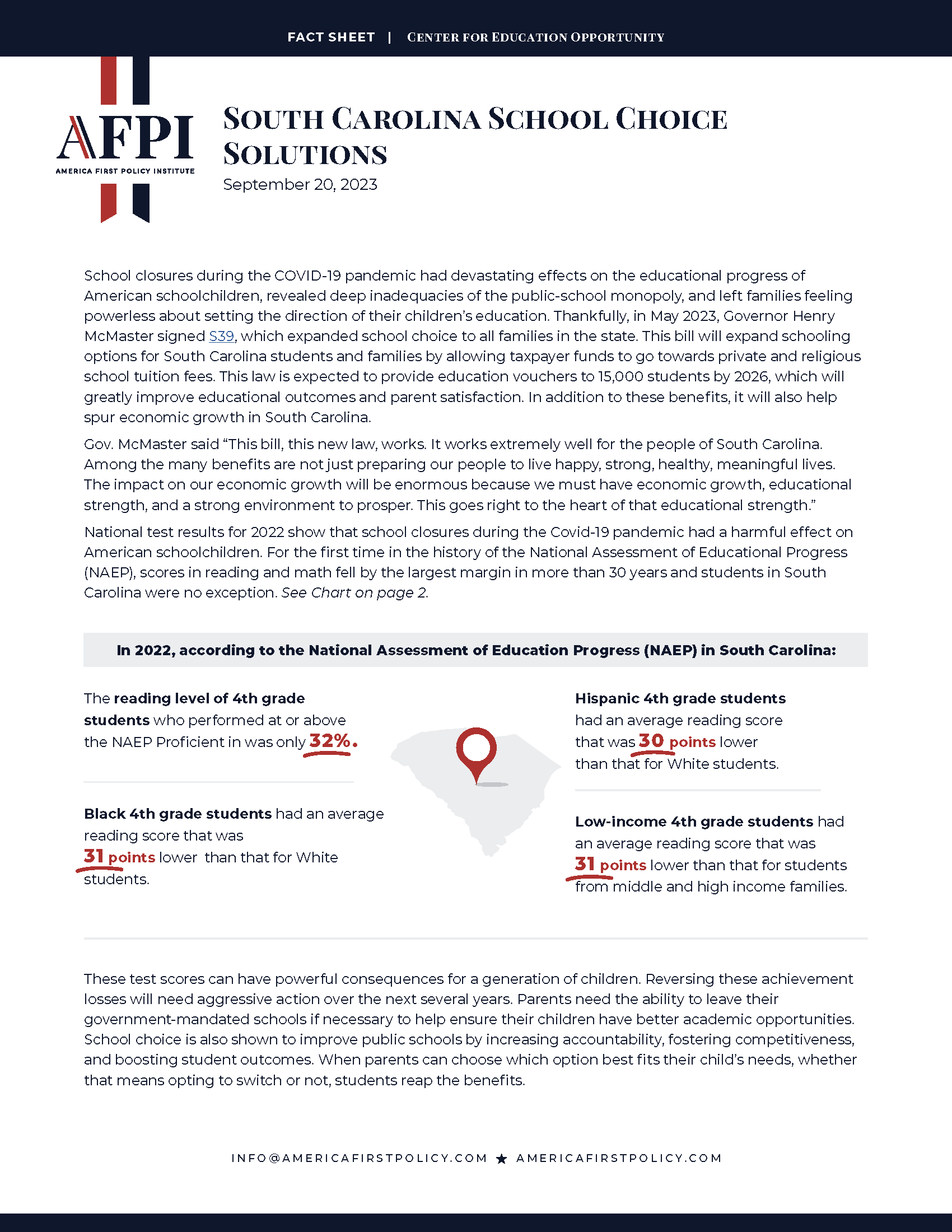South Carolina School Choice Solutions
School closures during the COVID-19 pandemic had devastating effects on the educational progress of American schoolchildren, revealed deep inadequacies of the public-school monopoly, and left families feeling powerless about setting the direction of their children’s education. Thankfully, in May 2023, Governor Henry McMaster signed S39, which expanded school choice to all families in the state. This bill will expand schooling options for South Carolina students and families by allowing taxpayer funds to go towards private and religious school tuition fees. This law is expected to provide education vouchers to 15,000 students by 2026, which will greatly improve educational outcomes and parent satisfaction. In addition to these benefits, it will also help spur economic growth in South Carolina.
Gov. McMaster said “This bill, this new law, works. It works extremely well for the people of South Carolina. Among the many benefits are not just preparing our people to live happy, strong, healthy, meaningful lives. The impact on our economic growth will be enormous because we must have economic growth, educational strength, and a strong environment to prosper. This goes right to the heart of that educational strength.”
National test results for 2022 show that school closures during the Covid-19 pandemic had a harmful effect on American schoolchildren. For the first time in the history of the National Assessment of Educational Progress (NAEP), scores in reading and math fell by the largest margin in more than 30 years and students in South Carolina were no exception. See Chart on page 2.
In 2022, according to the National Assessment of Education Progress (NAEP) in South Carolina:
- The reading level of 4th grade students who performed at or above the NAEP Proficient in was only 32%.
- Black 4th grade students had an average reading score that was 31 points lower than that for White students.
- Hispanic 4th grade students had an average reading score that was 30 points lower than that for White students.
- Low-income 4th grade students had an average reading score that was 31 points lower than that for students from middle and high income families.
These test scores can have powerful consequences for a generation of children. Reversing these achievement losses will need aggressive action over the next several years. Parents need the ability to leave their government-mandated schools if necessary to help ensure their children have better academic opportunities. School choice is also shown to improve public schools by increasing accountability, fostering competitiveness, and boosting student outcomes. When parents can choose which option best fits their child’s needs, whether that means opting to switch or not, students reap the benefits.
As the AFPI Center for Education Opportunity, Chairman Scott Turner repeatedly states, “No one knows the needs and interests of a child more than their parent or guardian.”
School choice is representative of two core American values—freedom and opportunity. At AFPI, we believe that the purpose of education is to prepare Americans for the rights and responsibilities of citizenship. As public support for school choice continues to grow, students across the nation will have access to schooling that meets individualized needs, and educational outcomes will improve. Most importantly, parents will be empowered to have a stronger voice in the conversation about their child’s schooling. While the Biden administration tries to stall progress on school choice policies, the Center for Education Opportunity remains highly committed to the school choice mission
